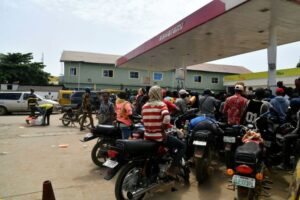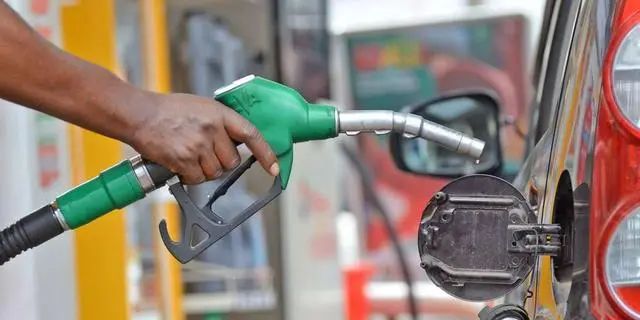Picture this: you wake up, hop in your car, and cruise to the nearest fuel station, only to find that petrol now costs as much as gold. Well, not literally—but with fuel prices skyrocketing from ₦195 to nearly ₦1,300 per litre overnight, it sure feels that way.
Welcome to Nigeria in 2024, where President Bola Ahmed Tinubu’s bold decision to remove fuel subsidies is causing more drama than a Nollywood thriller. This was supposed to fix Nigeria’s growing debt crisis, but instead, it’s thrown a wrench into everyday life. Let’s take a deep dive into what happened, why it happened, and how it’s hitting Nigerians where it hurts the most—our pockets.
Fuel Subsidy: Nigeria’s Safety Net—or Debt Trap?
For years, fuel subsidies were like a comforting blanket, keeping petrol prices low and helping Nigerians get by. With one of the world’s largest oil reserves, it made sense for Nigeria to provide cheaper fuel, right? But there was a downside—₦12 trillion spent over the last decade, and growing. President Tinubu looked at the books and said, “Enough is enough!”
On May 29, 2023, he pulled the plug on fuel subsidies, and the impact was instant. In a matter of hours, petrol prices shot up by more than 500%, leaving car owners and businesses in shock. Tinubu’s logic was simple: Nigeria couldn’t afford to keep footing the bill for cheap petrol while debt kept piling up. But what happened next? Let’s just say, the fuel subsidy removal triggered a ripple effect that’s still shaking the entire nation.
Fuel Crisis 101: Where Did All the Petrol Go?

Before Tinubu’s move, Nigeria was guzzling down 60 million litres of petrol every day. Fast-forward to August 2024, and we’re down to just 4.5 million litres a day—a whopping 92% decrease. Why? Because at these prices, even filling up a tank feels like a luxury.
Fuel distribution has also become something of a nightmare. Out of Nigeria’s 36 states, only 16 are receiving significant fuel allocations. Niger State is the luckiest, getting 21 trucks a day, while Lagos, the nation’s bustling commercial hub, gets 12 trucks. The rest of us? Well, some states like Ekiti and Gombe are barely getting by on one truck a day. So, unless you live in one of the top fuel-receiving states, good luck finding petrol without a long wait—and an even longer bill.
The Cost of Living: From Jollof Rice to Chewing Sticks?
If you think high petrol prices are just affecting how we move, think again. The ripple effect has touched every part of daily life. Inflation soared to 34.19% in June 2024, the highest it’s been in nearly 30 years, before dipping slightly to 32.7% in September. But even a small drop doesn’t mean life is getting easier.
With transportation costs through the roof, food prices have followed suit. The World Bank has some sobering news: 129 million Nigerians are now living in poverty—that’s more than half the population! And it’s not just numbers; it’s real people. Many are struggling to afford even basic items like toothpaste, which has led some to revert to using chewing sticks—yes, the traditional alternative.
Bye Bye, Big Cars: Nigerians Trade SUVs for Public Transport
Remember when driving a car was a symbol of success? Well, in post-subsidy Nigeria, it might be more of a burden. With petrol prices punching a hole in people’s wallets, more and more Nigerians are ditching their cars and hopping on public transport instead. Emmanuel, a 72-year-old retired health worker, shared his reality:
“I parked my car at my son’s house. I use public transport now. It’s not convenient, but it’s what the economy demands.”
Car dealerships are also feeling the pinch. With big-engine cars becoming too expensive to maintain, Nigerians are opting for more fuel-efficient alternatives—or getting rid of their cars altogether. Maji Abubakar, a car dealer in Abuja, says it’s been over a year since he sold a car with an eight-cylinder engine.
“It’s simple: no one wants to spend a fortune just to keep their car running,” Abubakar noted.
What Does This Mean for Nigeria?
Sure, removing the fuel subsidy was supposed to free up government resources and stabilize Nigeria’s economy, but what it’s also done is make life a lot harder for millions of Nigerians. Inflation is rising, fuel consumption has plummeted, and businesses are struggling to cope with higher operating costs. So, what now?
For the government, it’s all about playing the long game. Economists argue that removing the subsidy was a crucial step in getting Nigeria’s finances back on track. But in the short term, it’s clear that the average Nigerian is bearing the brunt of the decision. The government will need to find ways to ease the burden on ordinary citizens—whether that’s through social assistance programs, improved infrastructure, or alternative energy investments.
A Glimpse of Hope?
While the situation may seem bleak, some are looking to the future with cautious optimism. By reducing its reliance on oil subsidies, Nigeria could open the door for diversification. Industries like agriculture, renewable energy, and technology could benefit from the resources previously spent on keeping fuel prices low. But it will take time—lots of it—before we see real results.
In the meantime, Nigerians are proving just how resilient we are. From turning to chewing sticks to abandoning our beloved SUVs, we’ve shown we can adapt to even the toughest of challenges. And while we wait for the economy to catch up, we’ll keep pushing forward—after all, that’s the Nigerian spirit.
So, while Tinubu’s move to remove the fuel subsidy has reshaped the country in ways that weren’t entirely expected, one thing is for sure: Nigerians will find a way to make it through, no matter how high the price of petrol goes.
